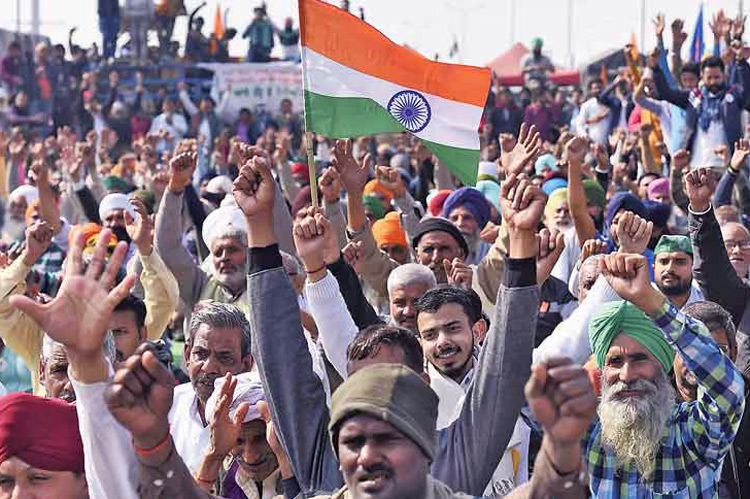After a tractorcade of hundreds of thousands of farmers and their supporters wound its way through New Delhi, India’s capital, Jan. 26, the government of Prime Minister Narendra Modi stepped up efforts to put an end to their monthslong protests against new laws that threaten their livelihoods. Until the measures are revoked, however, farmers are determined to maintain protest encampments they have set up around the capital.
The photo above shows protesters at the Ghazipur encampment celebrating as reinforcements arrive Jan. 31.
Modi’s “reforms” would remove state-backed guaranteed crop prices, allowing large capitalist buyers to drive down the prices farmers get for what they produce. Millions of working farmers would be forced deeper into debt or off their land altogether.
Farmers “are well organized,” Gursimran Singh told Militant correspondent Katy LeRougetel by phone from Punjab Jan. 29. His family has a farm and lives in Mandiani, a village of 2,000. He said that each household sent at least one person to the Delhi protest. “Seven or eight tractors went. Some people went on bicycles, some even walked.”
“Everything is based on volunteers,” Singh said, with free food from communal kitchens. He explained they’re winning widespread support from working people around the encampments. “The poor people [near the Delhi camps] are saying, ‘You should stay here, you feed us.’”
Heavy cop deployments tried to isolate three main protest encampments on the outskirts of the Indian capital Jan. 30-31, blocking road access with concrete barriers, trenches and razor wire. They have cut phone and internet connections and arrested some journalists visiting the area.
When police attempted to move protesters from the Ghazipur camp, thousands of farmers marched there from western Uttar Pradesh, Haryana, Rajasthan and Uttarakhand to defend them. These farmers, “who were not part of the protest, have now come to bolster the movement,” Rakesh Tikait, president of the Bharatiya Kisan Union, told Reuters.


